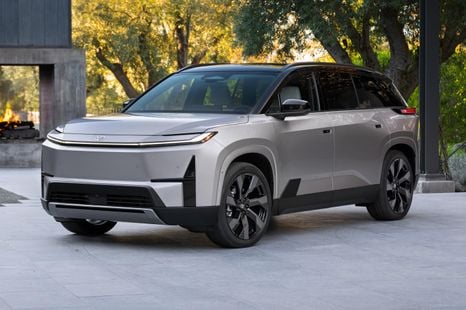

Damion Smy
2027 Toyota Highlander is the electric Kluger that Australia can't have
8 Hours Ago
The new Nissan X-Trail e-Power debuts new hybrid technology for Australia. It makes a good first impression.
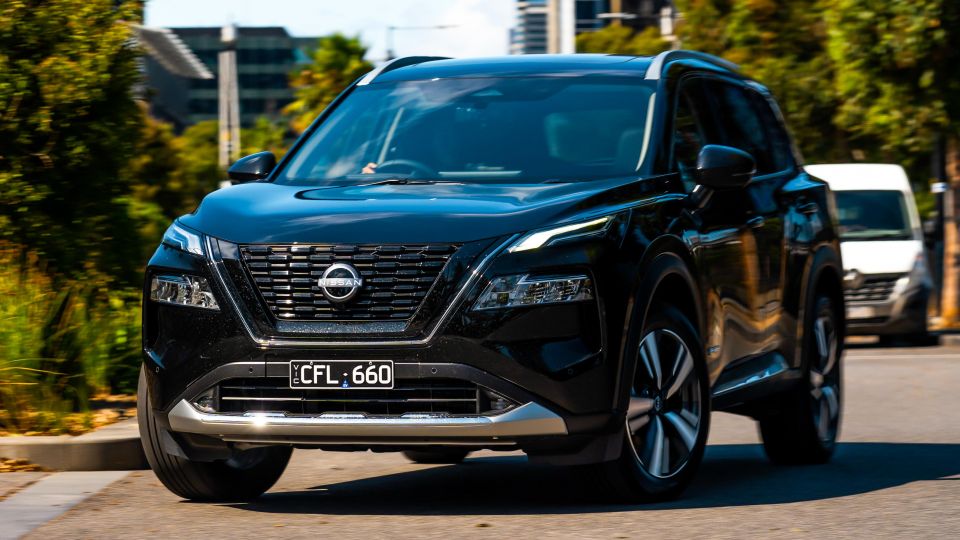
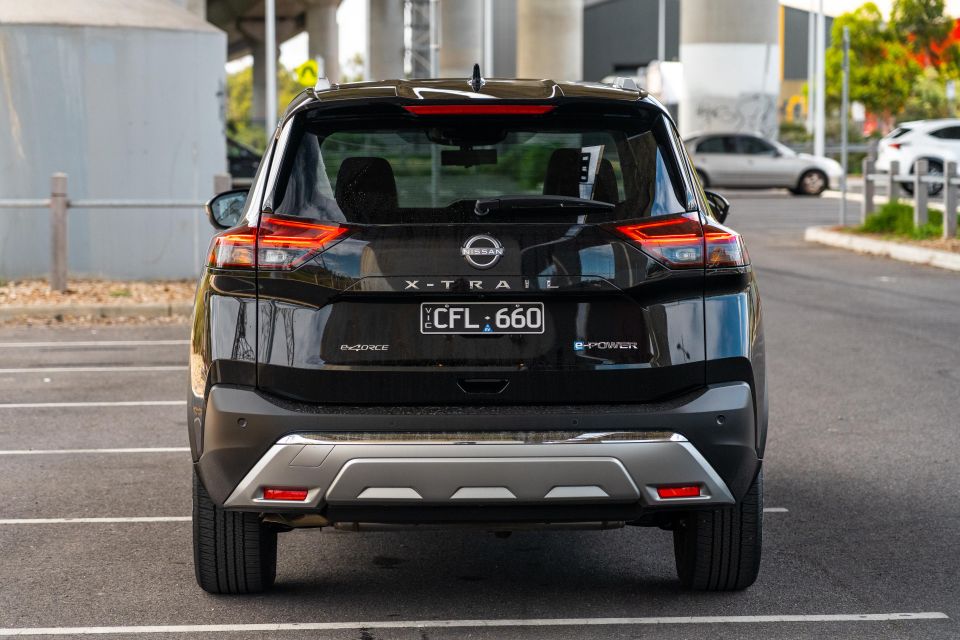

Quickly see how this car stacks up against its competition. Select any benchmark to see more details.
CarExpert brings reviews, research tools and trusted buying support together, guiding you from research to delivery with confidence.
Better late than never, right?

The 2023 Nissan X-Trail has been on sale in the USA since late in 2021 (as the Rogue), but it only hit Australia late in 2022.
As for e-Power? The hybrid technology debuted in Japan during 2016 on the Note hatchback, and Nissan Australia has been crying out for it since around 2020.
Well, it’s finally arrived. The new X-Trail range touched down late in 2022, followed early in 2023 by the e-Power model you see here.
Nissan is aiming high with the X-Trail e-Power with e-4orce (yes, this is the only time we’ll use its full name).
It’s shooting for the rampantly popular Toyota RAV4 Edge and Cruiser AWD Hybrids, offering only high-end Ti and Ti-L versions with sticker prices well north of $50,000 before on-road costs.
It’s also hoping to educate Australians about a new form of hybrid tech that it says offers Toyota-rivalling efficiency, but delivers it in a very different way.
Taking on the RAV4 is not an easy task, but the X-Trail has what it takes… for the most part.
At launch, the X-Trail e-Power is being offered in high-spec Ti and Ti-L trims only, with starting prices of $54,190 and $57,190 before on-road costs respectively.
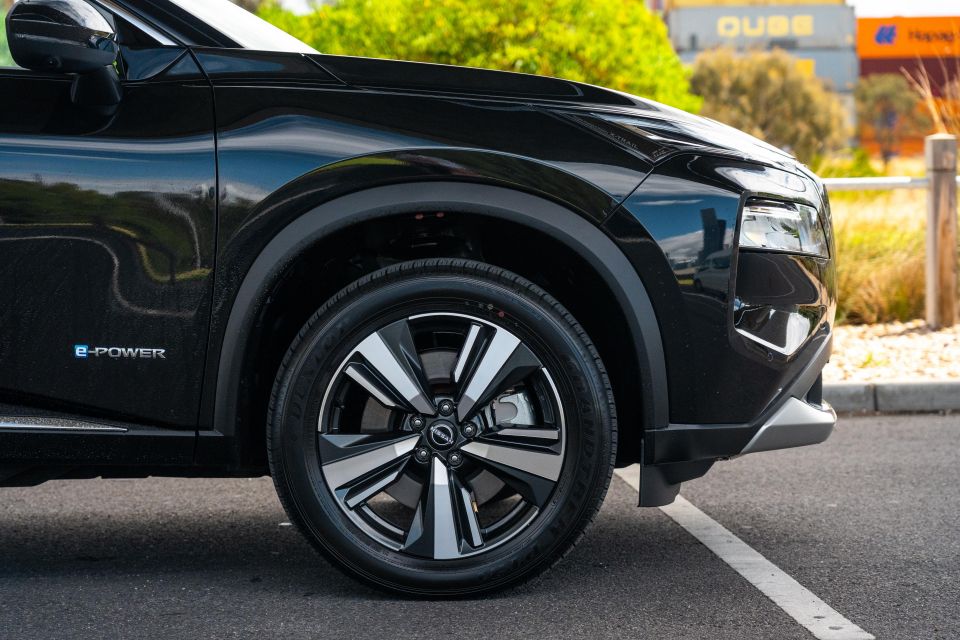
That represents a $4200 premium over the equivalent regular petrol-only model. For reference, Toyota charges between $2500 and $5500 extra for hybrid power in the strong-selling RAV4.
Currently, you’ll pay $51,200 before on-road costs for a Toyota RAV4 Cruiser AWD Hybrid. The more soft-road ready Edge AWD Hybrid has a sticker price of $55,150 before on-roads. Wait times are currently sitting at up to 24 months, compared to the three-to-six month window Nissan says applies to the e-Power.
If you’ve a plug at home or fancy a longer EV-only range, the Mitsubishi Outlander PHEV (which shares its bones with the X-Trail) starts from $55,490 before on-roads. You’ll get up to 84km of EV driving from the Outlander on a charge.
Buy your new car without the stress. It's fast, simple and completely free.

Great service from Travis and team, second time I have used this business would not hesitate to recommend them to anyone
Craig C.
Purchased a Ford Ranger in Sunshine Coast, QLD
CarExpert helped Craig save thousands on his Ford Ranger, now let us save you on your next new car.
Get your BEST priceDon’t be fooled by the fact the X-Trail shares its bones with the Outlander, because Nissan has done a better job executing the cabin than Mitsubishi.
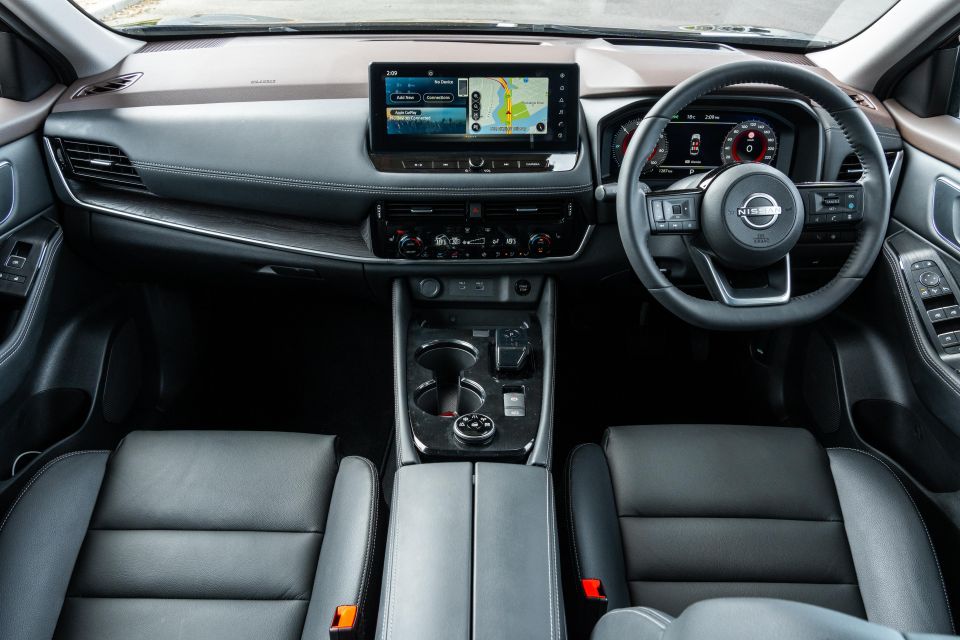
Most of the materials in the Ti e-Power feel high quality, the infotainment system doesn’t feel aftermarket like some Renault-Nissan-Mitsubishi Alliance products, and it’s loaded with practical touches that make day-to-day life easier.
The seating position is excellent, with plenty of support for long drives and a panoramic view of the road ahead, and the flat-bottom steering wheel feels lovely.
It always felt as though you were sitting on milk crates in the old model; the new one is significantly better.
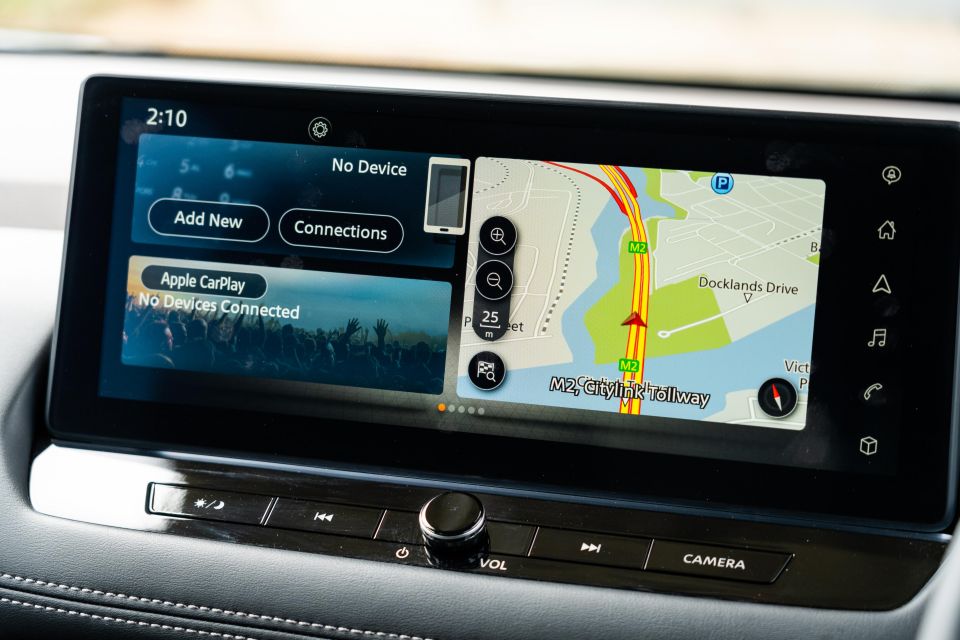
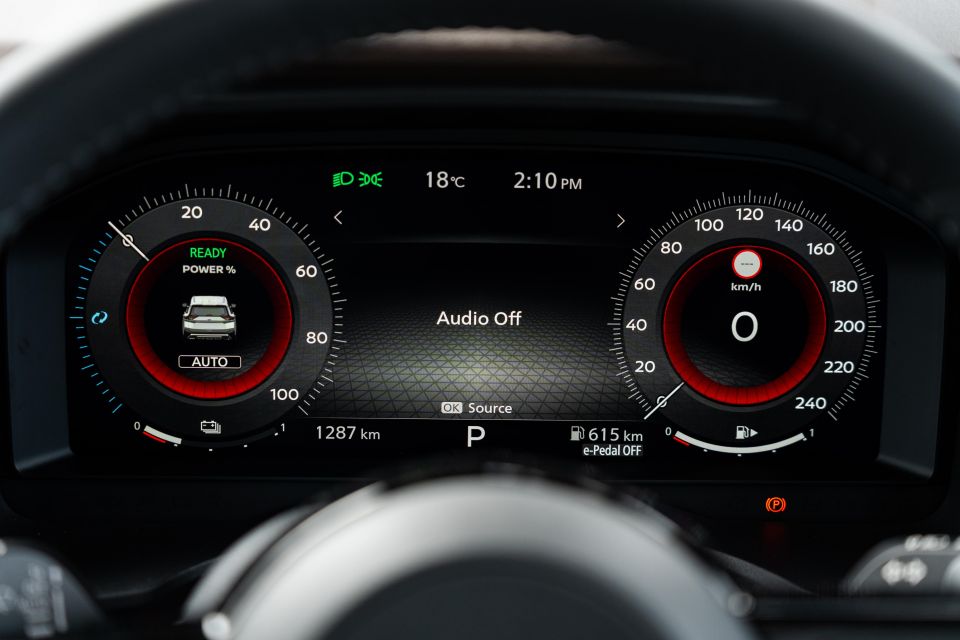
While we’re talking improvements, the 12.3-inch infotainment system is much better than the low-res, low-tech touchscreen that served in the last X-Trail. With wireless Apple CarPlay, reasonably attractive graphics, and sharp responses, it’s very functional.
Nissan still can’t match the Volkswagen Group when it comes to the polish of the graphics and animations though, and the lack of app connectivity is disappointing from a new car, with a steeper new price and high-tech hybrid powertrain.
It’s a similar story with the digital instrument binnacle, which is functional and shows plenty of information, but still looks a bit unsophisticated and lacks the options available in its German rivals.
There’s heaps of storage up front. Along with a deep central bin and wireless phone charger at the base of the dash, there’s a massive space beneath the central tunnel that’s perfect for a handbag. The dual cupholders are large coffee friendly, too.
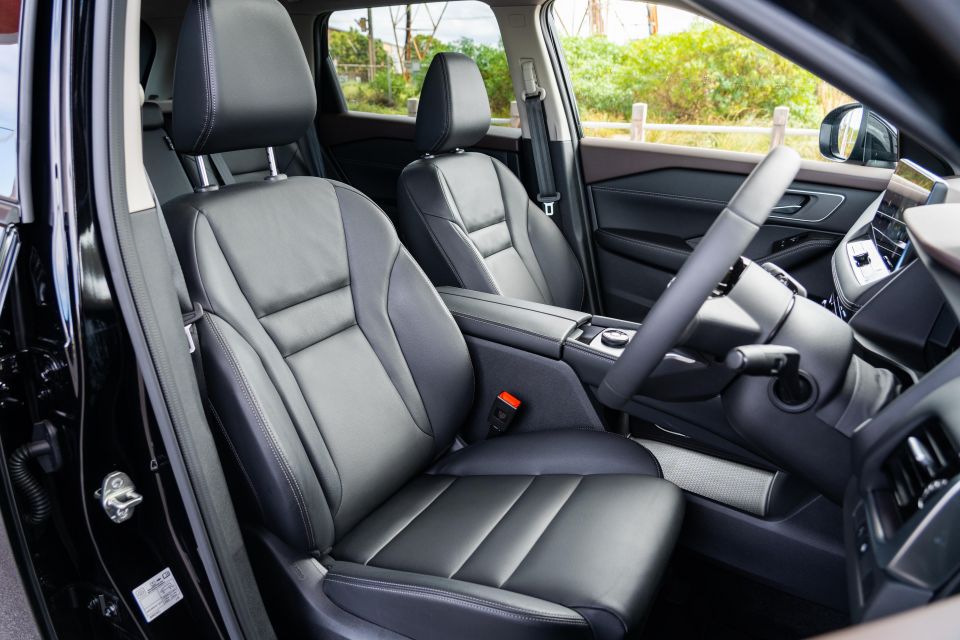
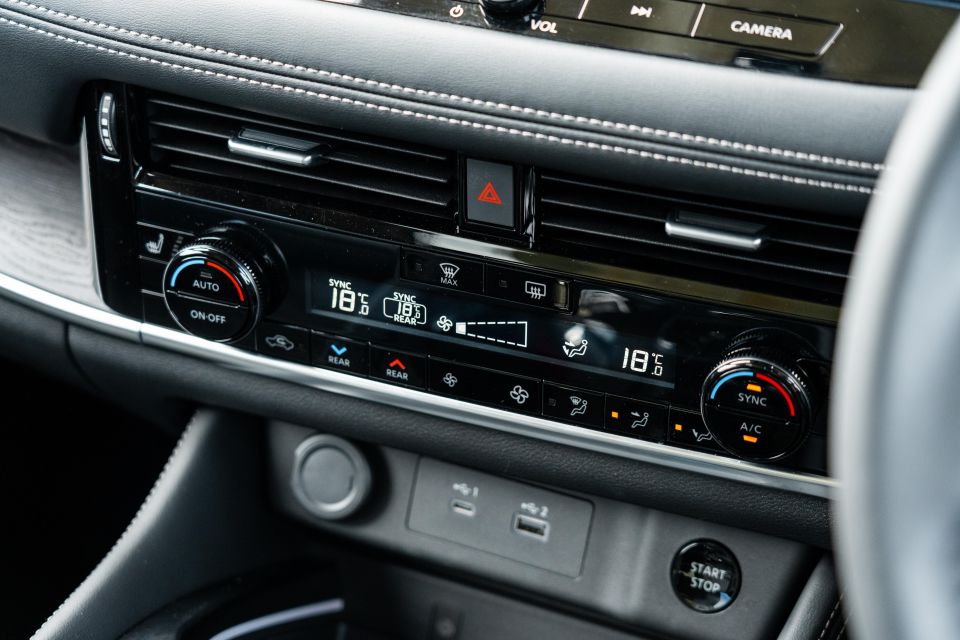
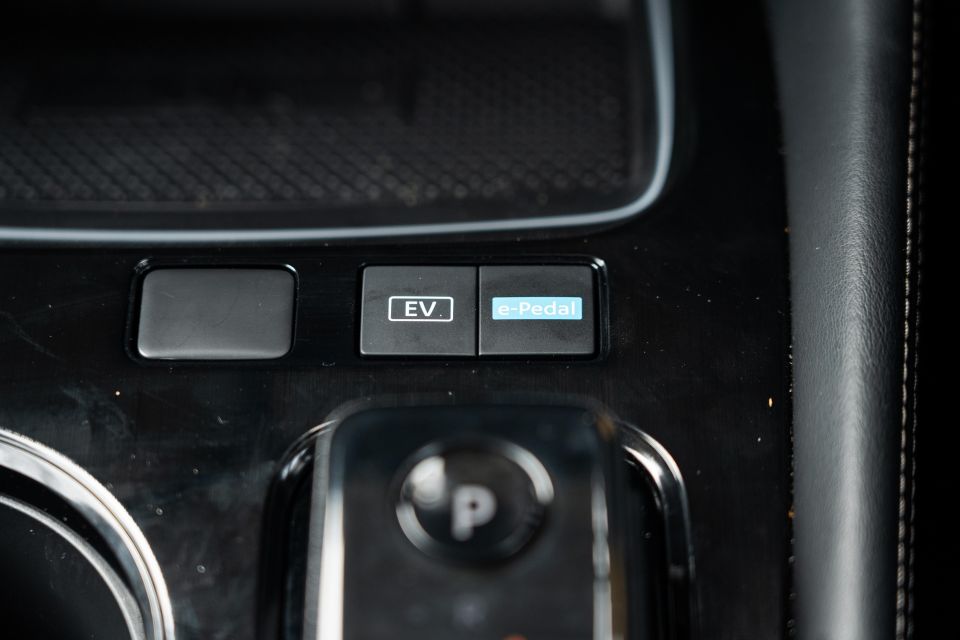
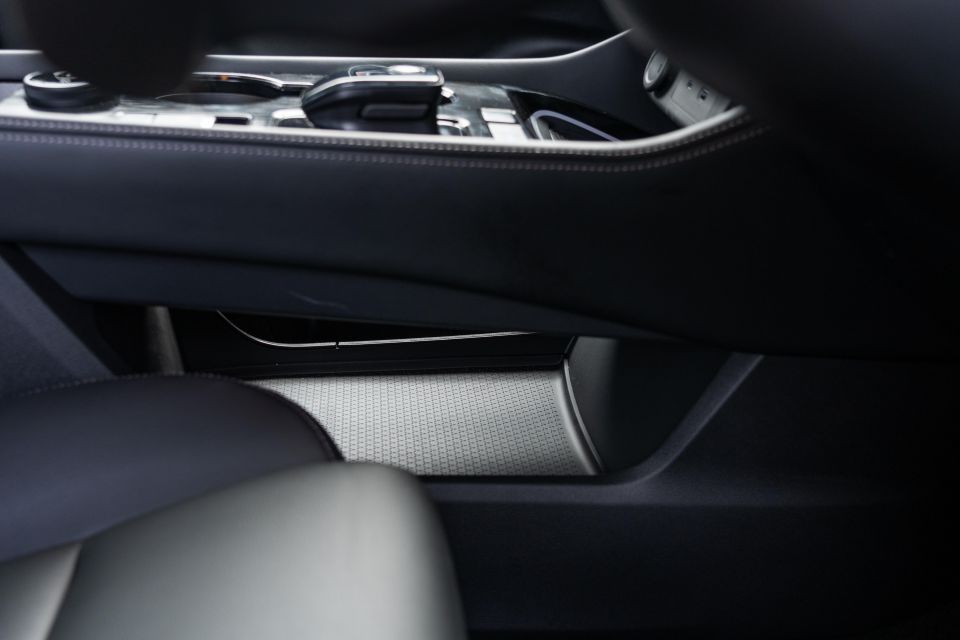
Points to Nissan for leaving physical climate controls, and for putting buttons for EV Mode and and e-Pedal within easy reach rather than burying them in sub-menus.
Rear seat space is standout in the new X-Trail. For starters, the rear doors open to 90 degrees to make it easier to load kids into the back, and once you’re there the headroom, legroom, and width are up there with the class-leaders.
Even with a panoramic sunroof there’s space for tall adults back there, while the USB ports, air vents, and climate controls are all useful inclusions. The Ti-L also picks up manual sunshades, which would be a handy addition to the Ti on test here.
The requisite ISOFIX anchors and top-tether points are all fitted as standard.
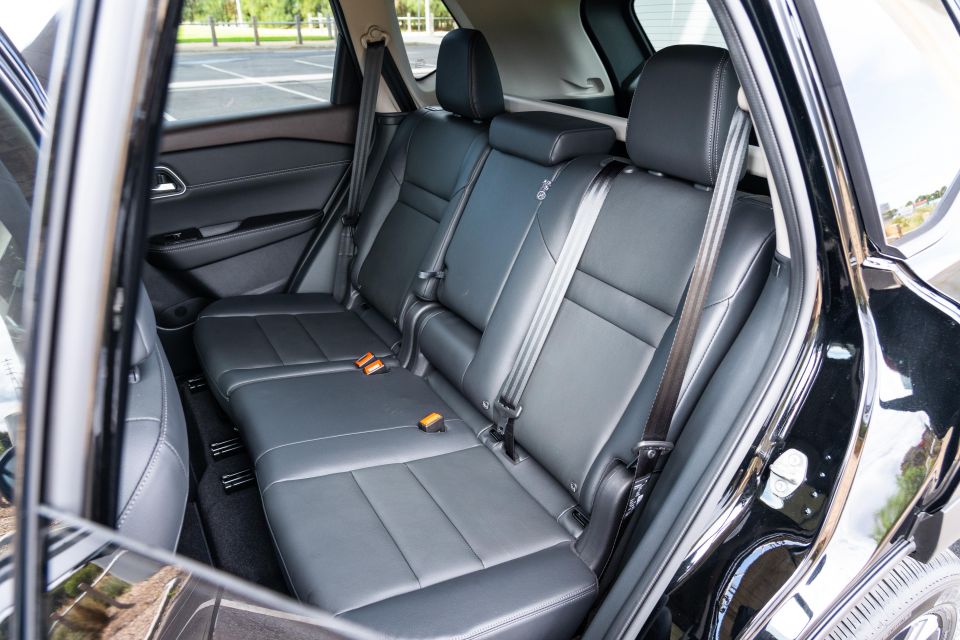
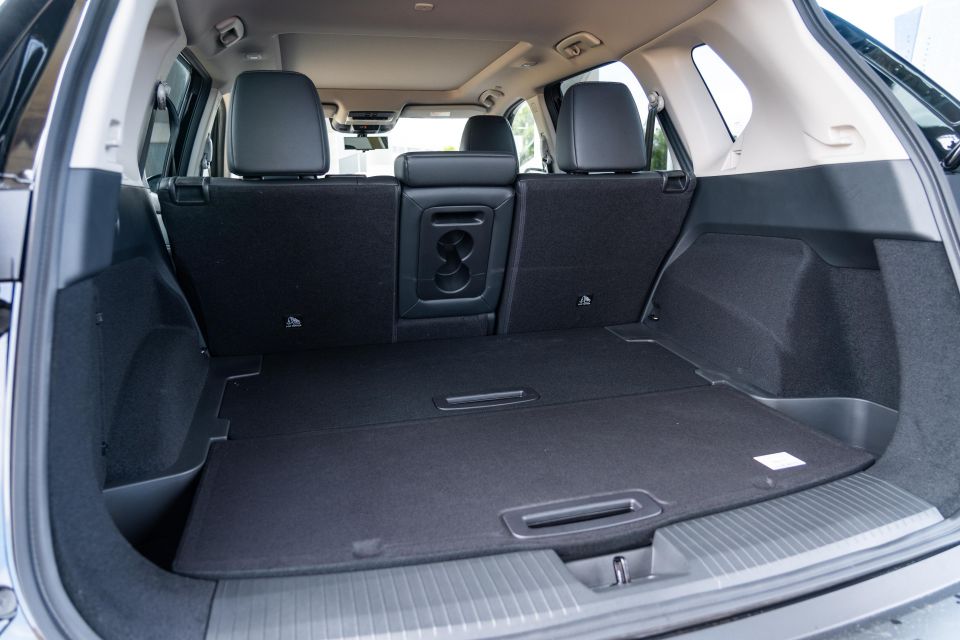
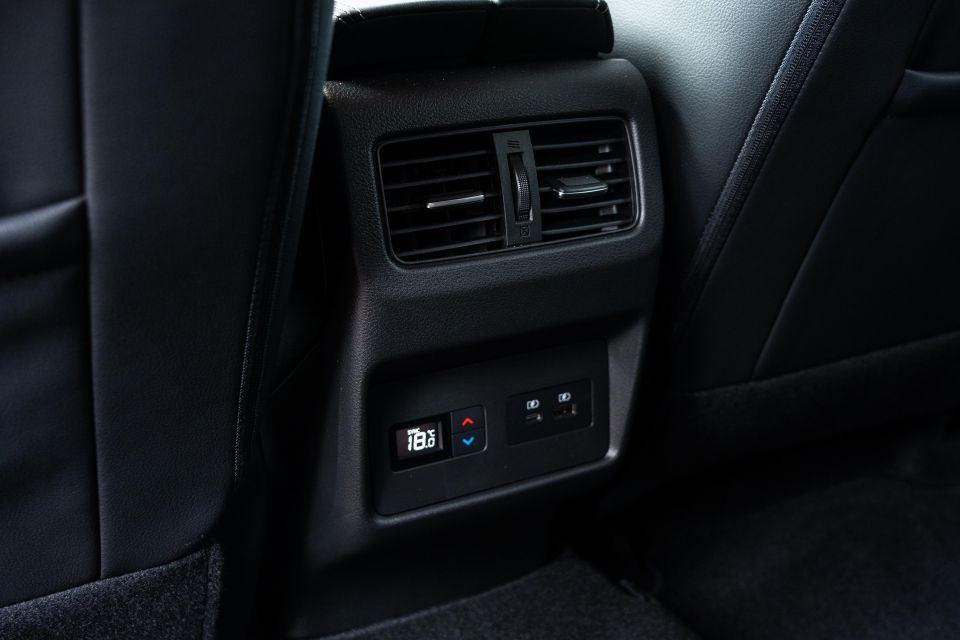
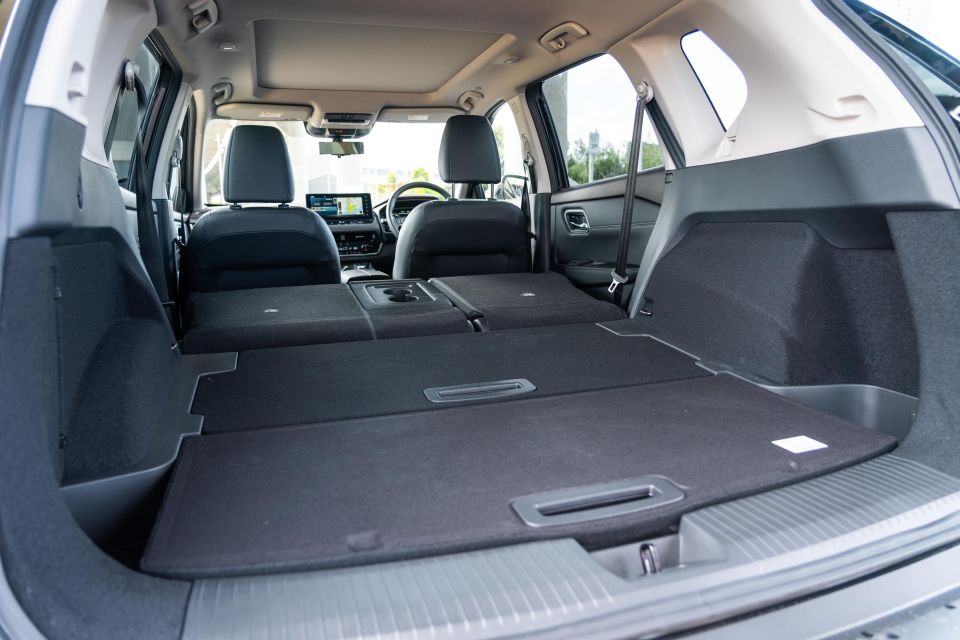
It’s disappointing Nissan and Mitsubishi have both opted for a fold-down central armrest that allows loose objects from the boot to potentially fly into the cabin, though. Rather than a cutout in the seat back, the upper part of the back rest itself folds like a ski port.
There’s no third row option on Australian models like there is overseas, but the X-Trail e-Power’s 575L boot (to the roof) is just 10L down on petrol-powered five-seat models.
Nissan doesn’t quote a boot volume with the second row folded, but we can attest it’s one of the more practical luggage areas in the segment, and thankfully the seats fold pretty flat as depicted above.
Unlike the petrol range, the X-Trail e-Power forgoes a space-saver spare wheel and has a tyre repair kit.
Prepare to get a bit nerdy, because this system is different to the Toyota hybrids Australians know.
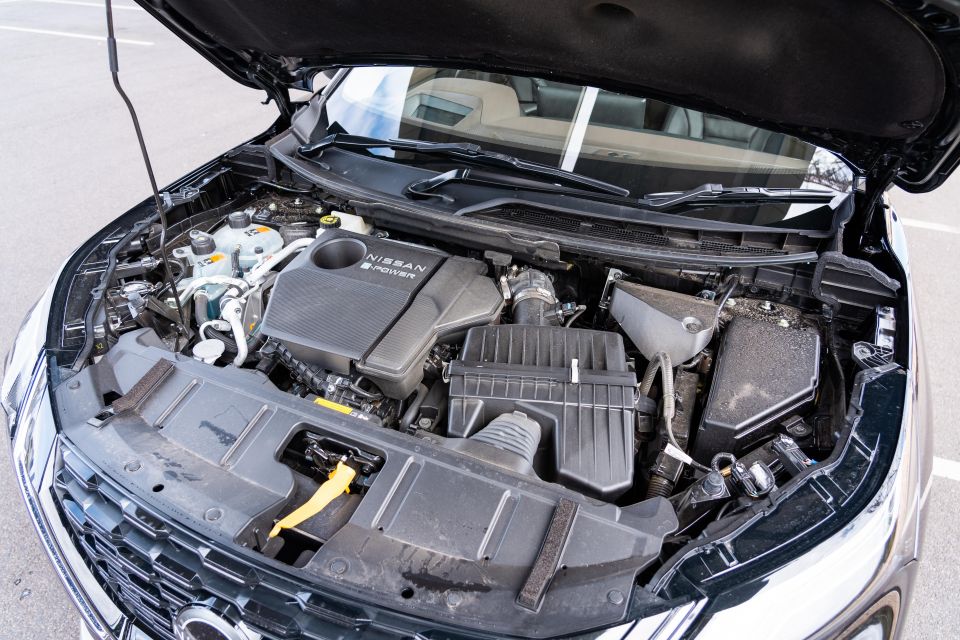
Its components are as follows:
Rather than directly driving the wheels through a conventional transmission or CVT, the petrol engine is mated to a motor-generator and an inverter.
That unit is used to charge the lithium-ion battery pack, which in turn feeds the drive motors. It’s not quite a range extender, given the car has an electric-only range so short it’s not even quoted by Nissan, but the engine also doesn’t directly drive the wheels.
The closest it comes is when you mat the throttle and it feeds the electric motors (via the attached generator and inverter) directly, rather than just suppling energy to supply the battery.
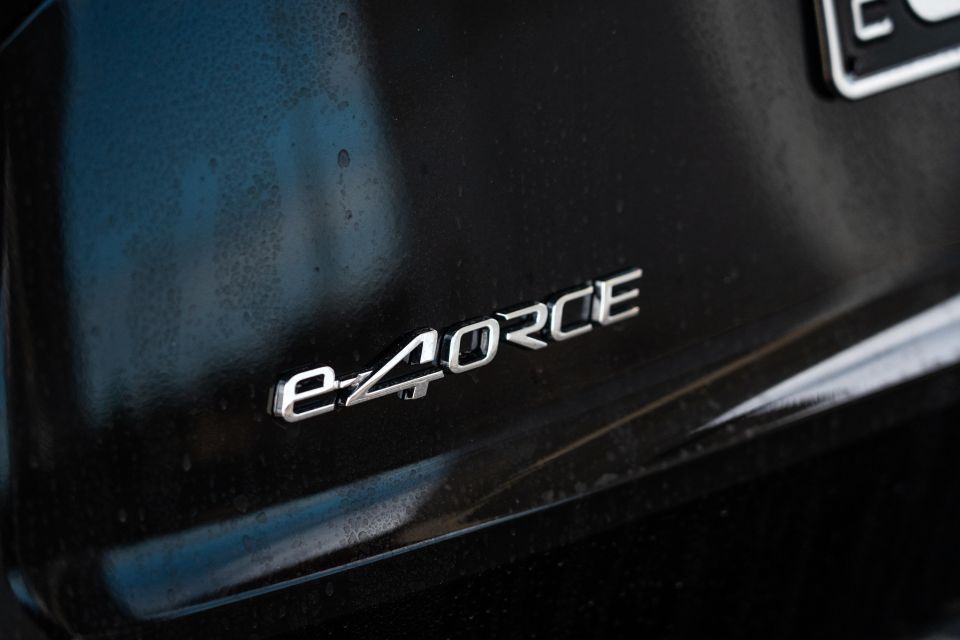
The end result is a car that should feel like a pure-electric vehicle (EV) to drive, complete with Nissan’s e-Pedal regenerative braking system, but one that offers similar range to a Toyota RAV4 Hybrid on the open road.
Nissan says the car uses 6.1 litres per 100km on the combined cycle, we saw 6.0 litres per 100km over a week of mixed driving. That’s significantly better than the 2.5L petrol can manage, although the 4.8L/100km claim from the Toyota RAV4 puts the X-Trail in the shade.
The Nissan drinks 91 RON regular unleaded, although more expensive 95 RON is recommended, and has a 55-litre fuel tank.
You need to recalibrate your brain a bit, but the e-Power is very nice to drive once you do.
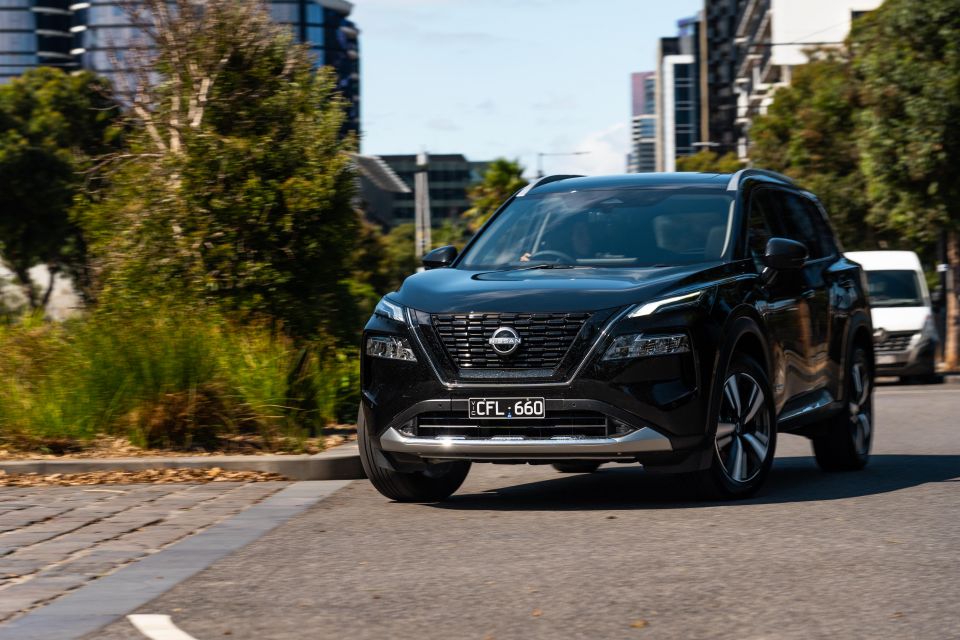
It starts in EV mode as a general rule, offering a few minutes of silent driving unless you demand maximum performance, before the petrol engine starts and settles into what feels like quite a rough, high idle for a minute to charge the lithium-ion battery.
The strange part of it all is the fact the engine revs in the background regardless of what you’re doing with the throttle. You might be crawling in city traffic, or slowing down, and the revs don’t move in concert with your right foot.
After its first startup the engine is generally very refined, and once you’re dialled into how the system works it’s easy to ignore the disconnect between engine speed and road speed, but there is a learning curve.
The payoff is a driving experience that does a decent impression of an electric vehicle. The X-Trail is smooth and punchy off the line, and offers three levels of brake regeneration when you lift off the brake.
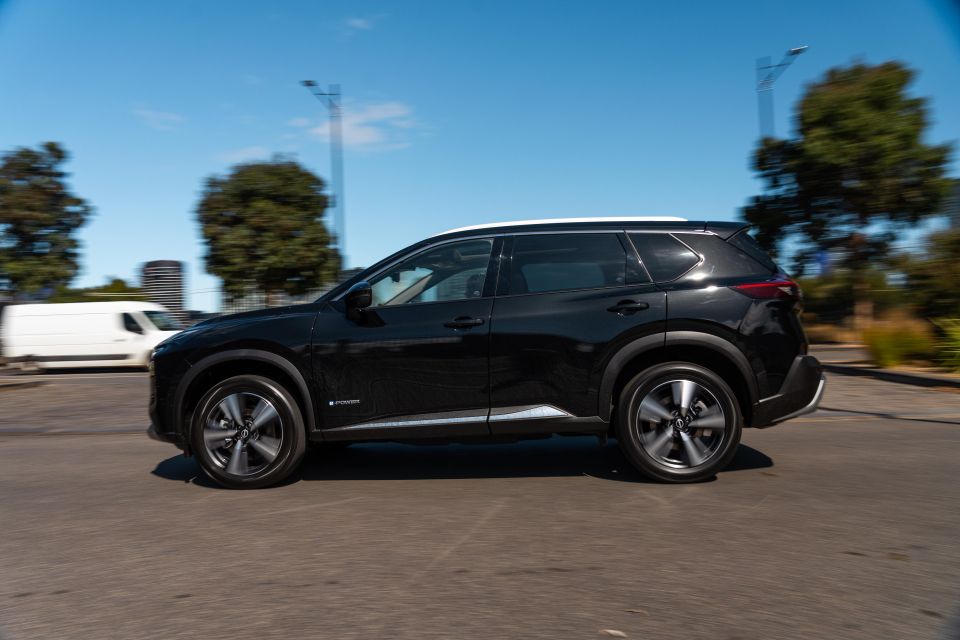
The standard “D” is very light, the “B” option is a sort of halfway house, and the full e-Pedal mode will allow you to drive with one pedal most of the time. Unlike in older iterations, the system cuts out at about 10km/h – so you don’t actually get one-pedal driving.
Nissan says it’s on the back of customer feedback, we say it’s missing the point of one-pedal driving.
At higher speeds you’ll notice the engine kicking in more regularly, but it never feels shouty like a RAV4. Because it’s generally being used to charge the lithium-ion battery when you’re cruising on a constant throttle, the petrol engine in the e-Power generally hums away at lower revs in the background.
It excels on the open road, which isn’t something we’d generally say about conventional hybrids.
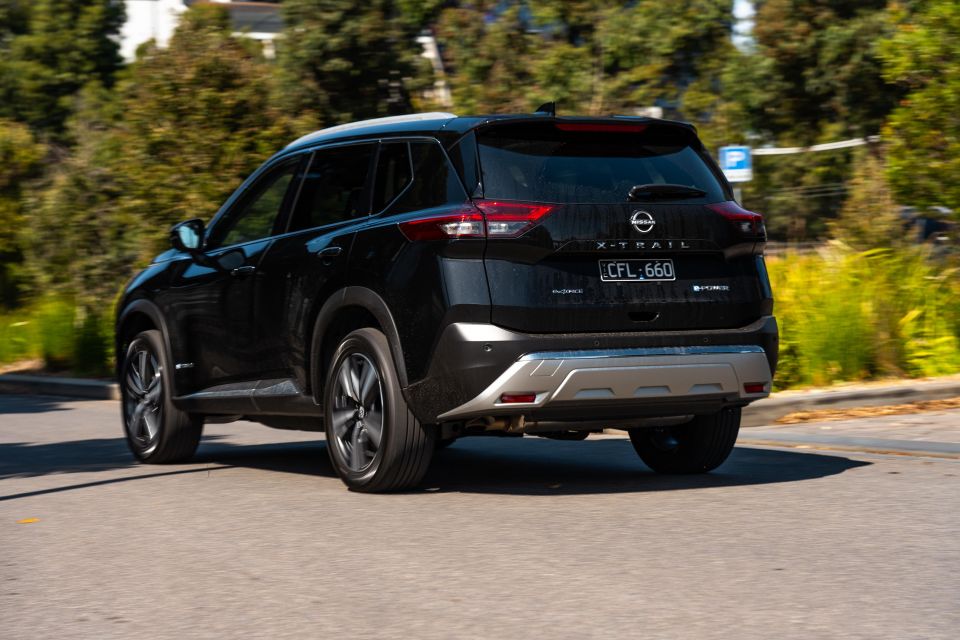
Wind and road noise are nicely suppressed at highway speeds, and Nissan’s suite of driver assists all work smoothly. The ProPilot system isn’t too hands on, instead only intervening when it’s actually required.
Ride quality is pretty good for a family SUV on big wheels, especially on the highway. It still feels a little bit busy at lower speeds, but no more than its biggest rivals.
Like the petrol model, the e-Power has light, easy steering that makes parking a breeze. Nissan’s cameras have improved significantly, so there’s now no excuse for dinged wheels or bumpers.
Combined with the tall window line and elevated seating position, the light steering and smooth, quiet powertrain make for a very pleasant way to get around town.
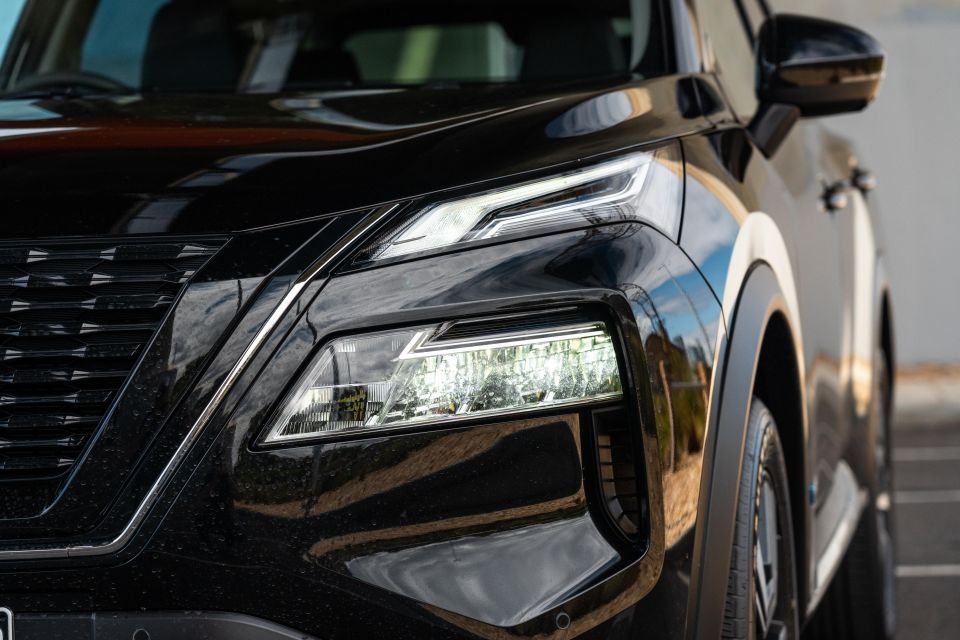
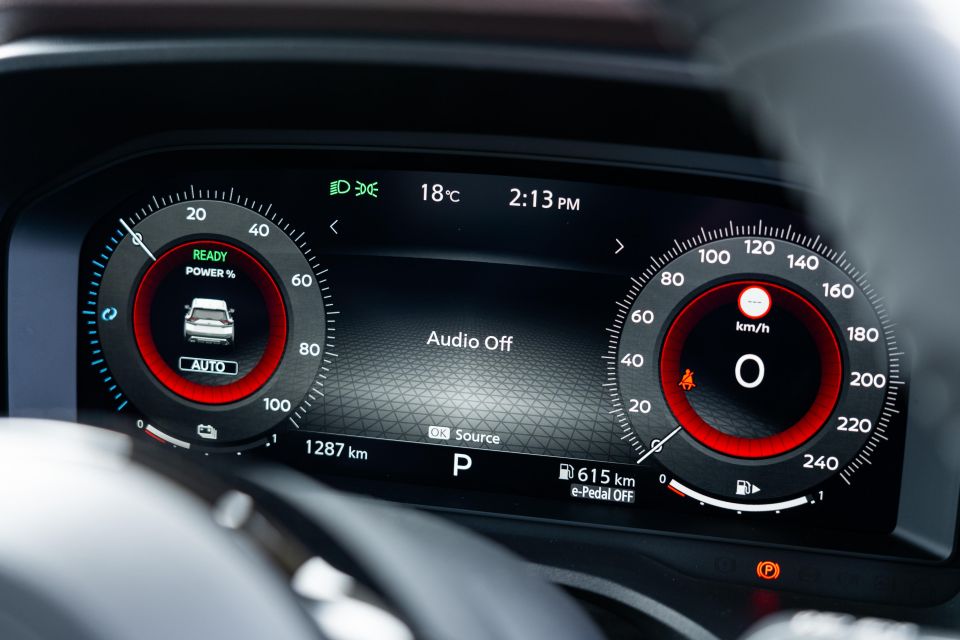
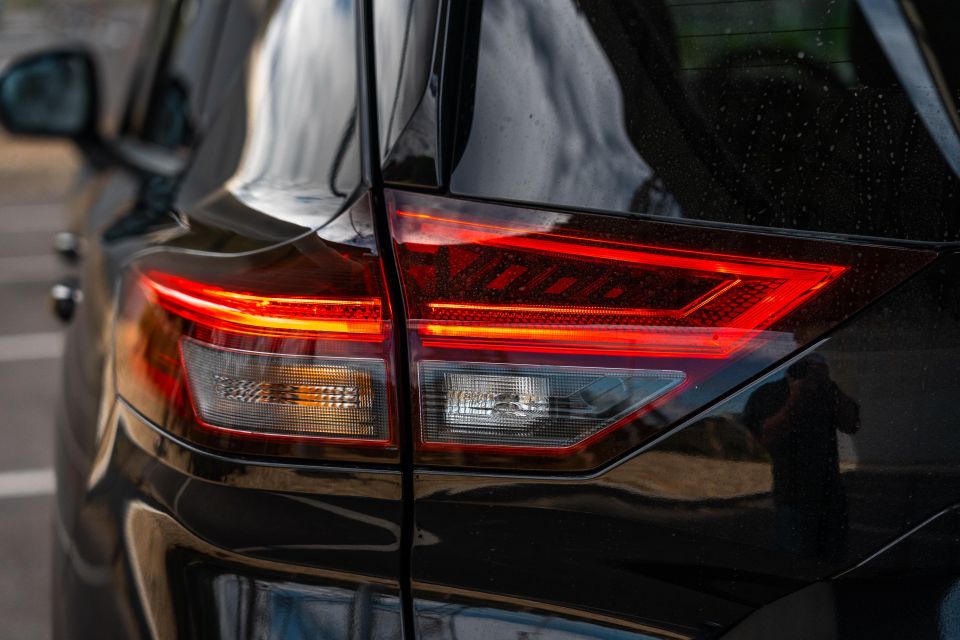

X-Trail Ti e-Power with e-4orce highlights:

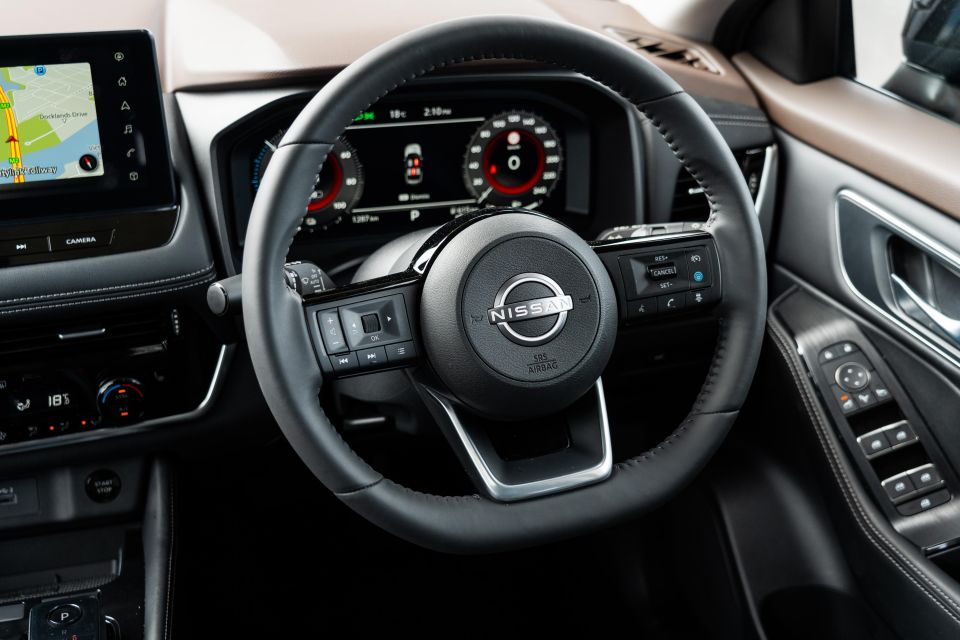
CarExpert brings reviews, research tools and trusted buying support together, guiding you from research to delivery with confidence.
X-Trail Ti-L e-Power with e-4orce adds:
MORE: 2023 Nissan X-Trail price and specs
The new X-Trail has a five-star ANCAP safety rating based on crash testing of the related Nissan Qashqai in 2021. This rating now includes e-Power versions as well.
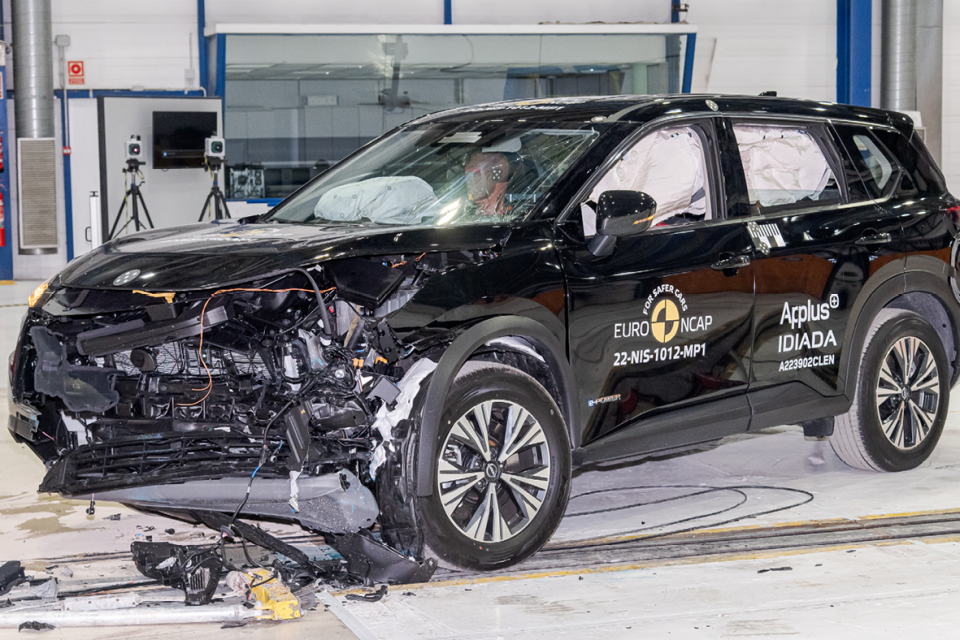
The X-Trail scored 91 per cent for adult occupant protection, 90 per cent for child occupant protection, 74 per cent for vulnerable road user, and an excellent 97 per cent for safety assist.
Standard safety features include:
ST-L and above add:
Ti and above add:
The X-Trail e-Power is backed by a five-year, unlimited-kilometre warranty like the wider Nissan range. It also features five years of free roadside assist.

Maintenance is required every 12 months or 10,000 kilometres, rather than 15,000km.
The brand offers six capped-price services, which in the e-Power cost $365, $472, $534, $571, $411, and $698.
That amounts to $3051 over six years or 60,000km, which is $5 cheaper than the X-Trail petrol over the same period.
Nissan’s e-Power system is an interesting alternative to the hybrids currently on offer in Australia, but it’s not the revolution some would have you believe.
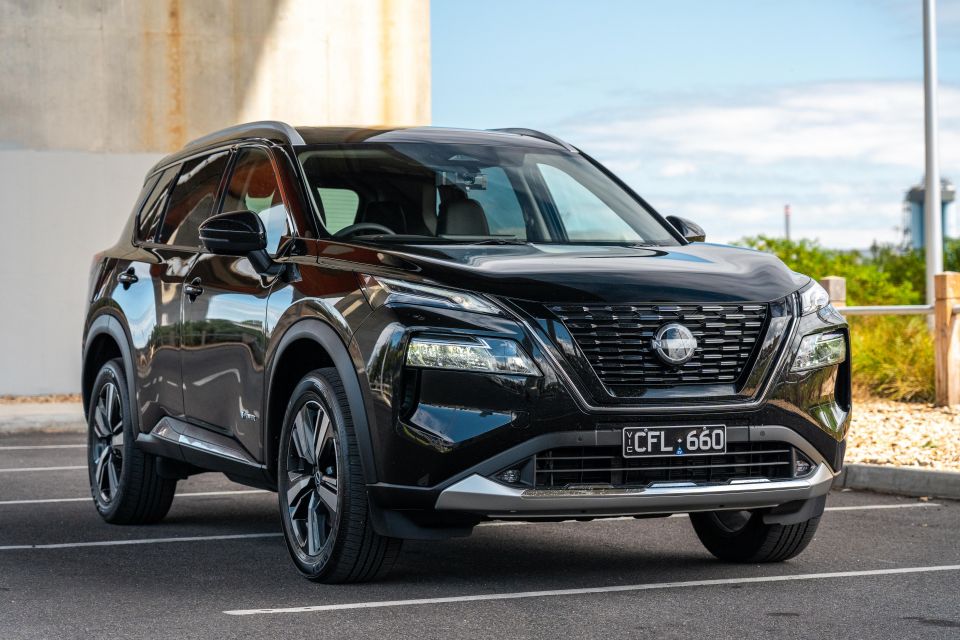
That’s not to say it’s not worth a look, though.
The drive is definitely more cohesive than what you get from its biggest rivals, and it definitely feels more electric than any other hybrid we’ve experienced… but you’re still acutely aware of the fact there’s a petrol engine under the bonnet at times, be it on startup or when you demand full power.
It comes close to matching a RAV4 for real-world efficiency, which is no mean feat, but can’t necessarily best it.
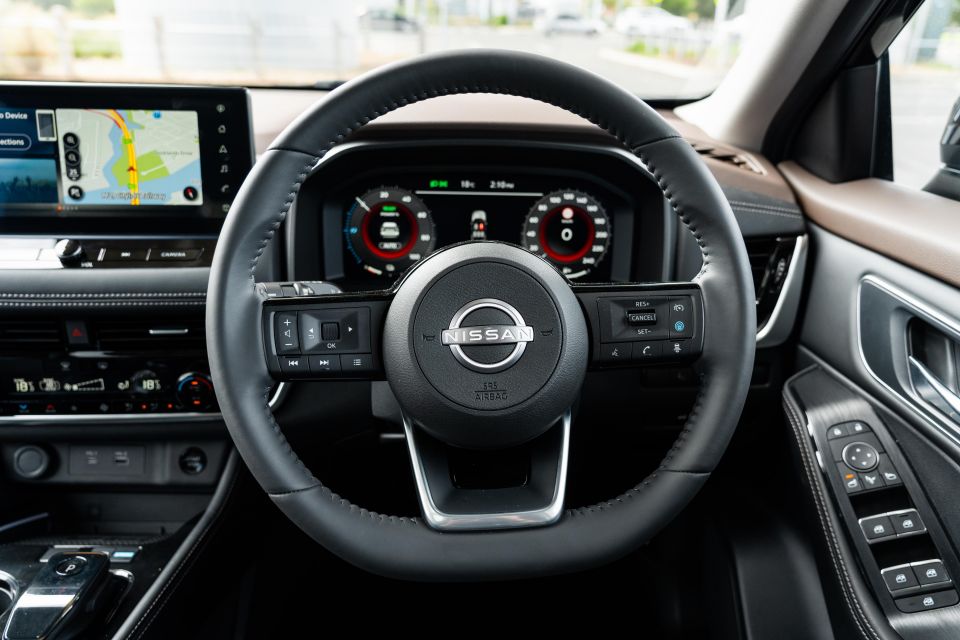
With those caveats considered, the X-Trail e-Power has plenty to offer.
The way it looks, drives, and feels inside are all quantum leaps forward from the previous-generation model, and the fact you can have one in around six months (as opposed to two years for a RAV4 Hybrid) is a serious drawcard.
It’s taken a while, but e-Power is finally here – and it’s made a positive first impression.
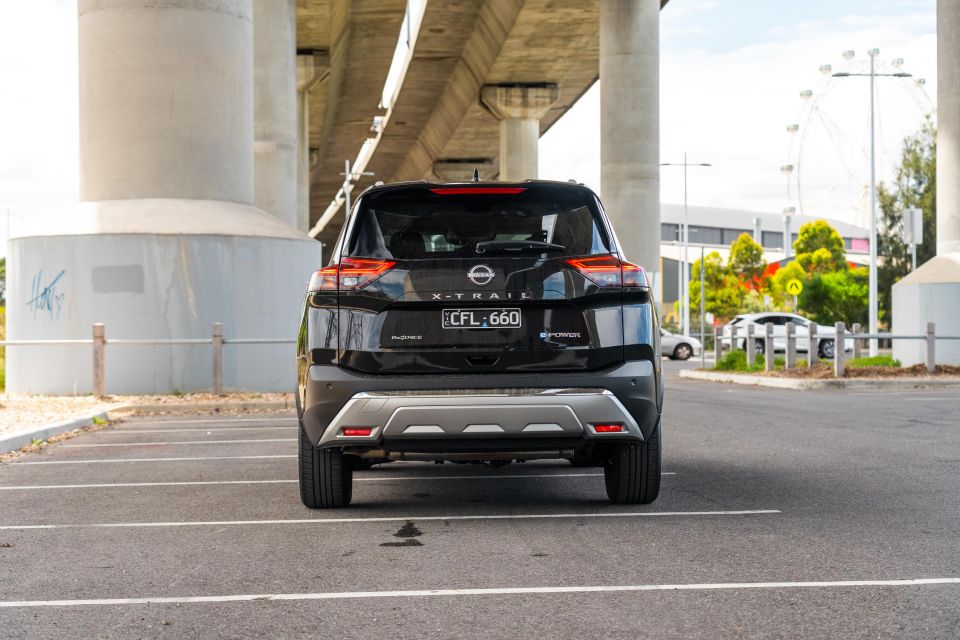
Click the images for the full gallery
CarExpert brings reviews, research tools and trusted buying support together, guiding you from research to delivery with confidence.
Nissan X-Trail
Nissan X-Trail Sales rolling 12-months#
*Based on VFACTS and EVC data
Looking for complete Nissan X-Trail price history?
Our Nissan X-Trail Pricing Page shows exactly how prices have changed over time.
2025
$36,990
2026
$38,140
2025
$41,465
2026
$42,615
2025
$46,060
2025
$50,265
2026
$51,415
2025
$53,265
2026
$54,415
Scott Collie is an automotive journalist based in Melbourne, Australia. Scott studied journalism at RMIT University and, after a lifelong obsession with everything automotive, started covering the car industry shortly afterwards. He has a passion for travel, and is an avid Melbourne Demons supporter.
Add CarExpert as a Preferred Source on Google so your search results prioritise writing by actual experts, not AI.


Damion Smy
8 Hours Ago
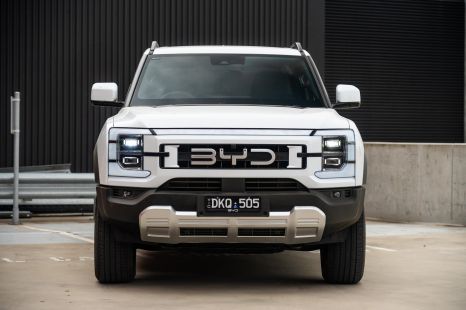

Max Davies
2 Days Ago
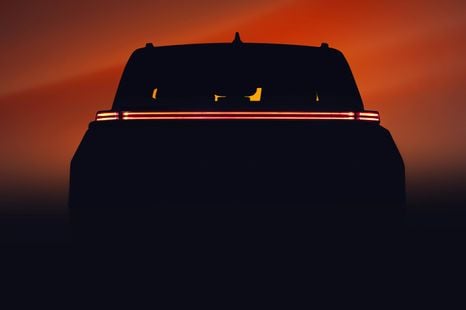

Damion Smy
2 Days Ago
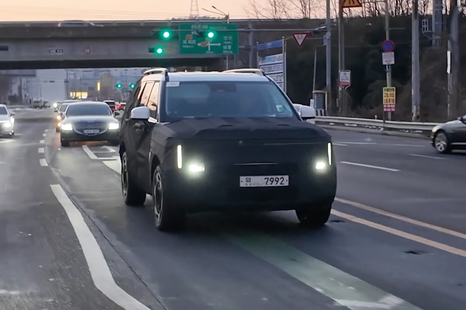

William Stopford
3 Days Ago
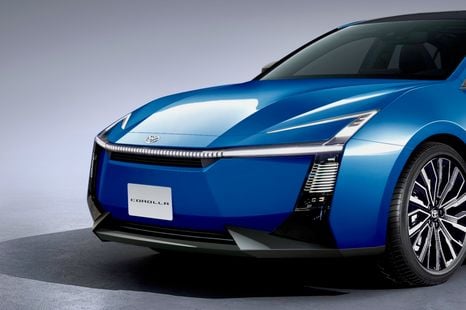

Ben Zachariah
4 Days Ago
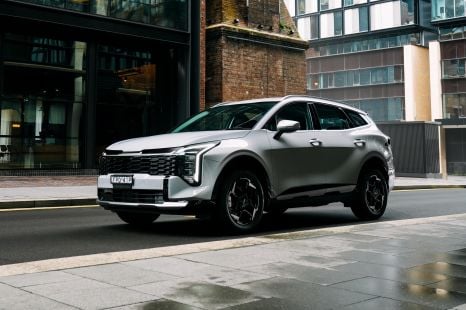

James Wong
4 Days Ago
Add CarExpert as a Preferred Source on Google so your search results prioritise writing by actual experts, not AI.
* Average savings based on recent CarExpert customer transactions. Actual savings will vary depending on vehicle make and model, location, stock availability, and other factors.
† Displayed prices exclude on-road costs such as delivery charges, registration fees, number plates, insurance and applicable road taxes. These prices are subject to change without notice and may not reflect current market pricing or dealer offers.
 Automotive Vehicle Spec Data & 4K images Powered by JATO Dynamics Ltd
Automotive Vehicle Spec Data & 4K images Powered by JATO Dynamics Ltd